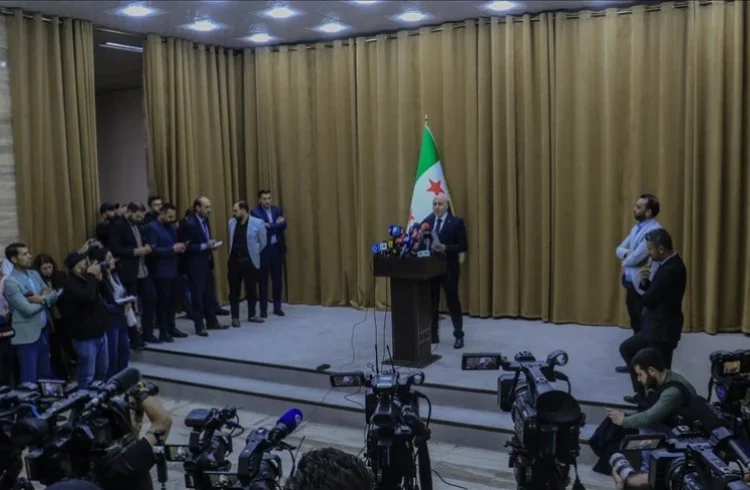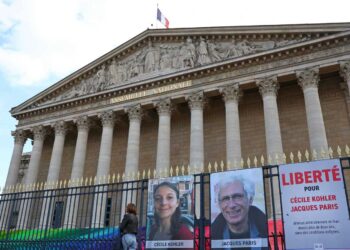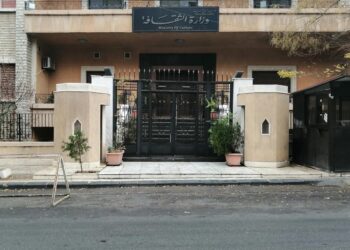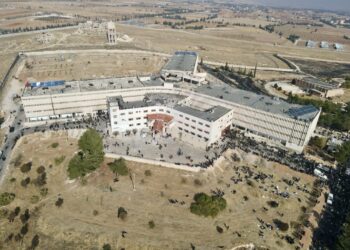In this section, we continue our discussion of the basic principles upon which national commissions of inquiry in Syria should be based (independence, representativeness, and clarity of mandate), with a focus on operational dynamics, particularly victim participation, procedural justice, and implementation processes.
Victim-Centered Epistemology and Participation Mechanisms
The shift from viewing victim testimony as mere procedural evidence to recognizing it as an epistemic authority represents a shift in traditional approaches to commissions of inquiry. This shift redefines the relationship between truth-seeking institutions and those most affected by violations. This shift goes beyond simple procedural adjustments to encompass what can be described as a victim-centered epistemology; this is the recognition that victims possess exceptional knowledge of the nature of systemic violations that is difficult to access through traditional investigative methods alone. Effective victim participation therefore requires institutional mechanisms that enable survivors to set investigative priorities themselves, identify patterns of violations that may be overlooked by external observers, and participate in the interpretation and analysis of findings before they are made public.
Activating victims’ roles cannot be achieved solely through limited advisory mechanisms. Rather, it requires building participatory structures that systematically integrate survivors’ perspectives and experiences into all stages of the investigation. This includes genuine victim representation on advisory bodies that determine the course and priorities of the investigation, their participation in developing testimony protocols, and providing victims with structured opportunities to review and comment on preliminary findings. These mechanisms serve several important functions: they enhance the accuracy of investigation findings by incorporating survivors’ subjective knowledge, increase the credibility of the findings among affected communities, and contribute to empowering victims, making them an active and integral part of justice processes. These participatory structures must be designed to avoid re-traumatizing victims while maximizing their participation and empowerment, moving from the concept of “passive testimony” to “empowered participation.”
Accessibility is a necessary infrastructure for ensuring effective victim participation, requiring attention to multiple dimensions, including geographic, linguistic, cultural, economic, and physical dimensions. Commissions seeking broad victim participation invest in establishing diverse and multiple access channels, such as local hearings that allow the commission to reach victims where they reside, rather than requiring them to travel to the commission’s headquarters. The most vulnerable groups—including children, the elderly, people with disabilities, and victims of sexual violence—require safe spaces for participation that take into account diverse abilities and specific support needs.
Providing psychological support is also a key component of a victim-centered approach, ranging from immediate intervention in crisis situations to providing sustained psychological support throughout the commission’s work. Trauma-sensitive procedures go beyond providing psychological counseling to encompass all stages of the process, such as the physical design of testimony rooms, training testimonial recipients on recognizing trauma symptoms and coping mechanisms, and developing flexible procedures for giving testimony that allow victims to control the pace of narration and the level of disclosure of distressing details.
The tension between preserving the victim’s dignity and the imperative of uncovering the truth is most clearly evident in decisions regarding public versus private hearings, the level of detail required regarding violations, and the protection of victims’ identities in published reports. This balance cannot be achieved through rigid rules; rather, it requires the adoption of flexible procedural frameworks that prioritize respect for the victim’s autonomy while simultaneously ensuring the integrity of the investigation. This includes providing a variety of options for testimony, including public hearings for those who wish to publicly acknowledge their suffering, private hearings for those who request anonymity, and written testimony for those who are unable or unwilling to provide oral testimony. The principle of “informed consent” must govern all forms of victim participation, with transparent explanations of how their testimony will be used, the measures available to protect them, and the risks that may persist despite these safeguards.
Procedural Guarantees and Transparency Necessities
The quasi-judicial nature of many commissions of inquiry imposes complex requirements for procedural fairness, requiring a delicate balance between investigative flexibility on the one hand, and the protection of the legal and procedural rights of individuals accused or suspected of involvement in violations on the other. Commissions of inquiry operate at the interface between criminal investigations and historical documentation, requiring procedural frameworks that draw from both fields while maintaining an independent and distinct character. Requirements for ensuring procedural fairness typically include advance notification of allegations, adequate opportunities to respond to evidence that incriminates or harms the accused, the right to legal representation during testimony, and access to documents relevant to the investigation. These safeguards serve two main purposes: they protect individuals from arbitrary action by the commission, and they enhance the credibility of the investigation’s findings by demonstrating adherence to procedural fairness standards.
Evidential standards and documentation methodologies are essential technical aspects that determine the reliability of investigation findings and their subsequent utility in accountability proceedings. Therefore, commissions of inquiry should establish clear evidentiary frameworks that clearly distinguish between different degrees of certainty, from preliminary indications that warrant further investigation to findings supported by conclusive evidence. Documentation requirements must balance the need to ensure reliability with the realistic challenges that may arise from the destruction of evidence or the intimidation of witnesses in cases of widespread and systematic violations. This has prompted the development of advanced documentation methodologies based on triangulation between oral testimony, documentary evidence, and forensic and criminal analyses. The probabilistic nature of many investigation findings, expressed in terms of “reasonable belief” rather than “criminal certainty,” also requires careful and precise wording to avoid ambiguity or misunderstanding, while maintaining analytical precision and clarity.
Public engagement strategies go beyond simply disseminating information to opening channels for effective dialogue with various segments of the public about the committees’ objectives, procedures, and outcomes. Successful public engagement requires the adoption of diverse, multi-media communication strategies that take into account the public’s varying access to media platforms and varying levels of literacy and knowledge. This includes the use of traditional media outlets through press conferences and periodic briefings, as well as digital platforms that allow for continuous updates and access to essential documents, and direct communication with the community through civil society networks and traditional community structures. In this context, the timing and sequencing of information disclosure are critical factors; premature disclosure of information could jeopardize the progress of investigations, while excessive secrecy could raise suspicions and lead to the spread of conspiracy theories.
Numerous previous experiences have confirmed that committees suffering from a lack of resources face successive obstacles that undermine their effectiveness and ability to accomplish their tasks. The lack of resources necessary to employ qualified personnel leads to delays in investigations, and the weak support provided to victims limits their participation.
Transparency goes beyond being merely a regulatory or procedural principle; it becomes a key mechanism for building legitimacy and societal trust, establishing broad public ownership of committees’ processes and outcomes. While the principle of transparency is essential, this must be done with careful consideration of legitimate confidentiality requirements at certain stages of the investigation. Transparency also includes publishing the methodologies and procedures used by committees in their work, issuing periodic reports detailing the progress of the investigation while preserving the public interest without compromising its progress, and ensuring that final reports contain sufficient detail on the evidence and methodologies so that the public can objectively evaluate the investigation’s findings. The digital revolution has opened up new possibilities for achieving advanced levels of transparency, through the creation of electronic repositories of testimony, searchable databases, and interactive platforms to enhance public participation. It is essential to balance these capabilities with the requirements of victim protection and resource challenges.
Resource Mobilization Engineering and Recommendation Implementation Mechanisms
The adequacy of financial resources for commissions of inquiry goes beyond simply providing adequate budgets. It also requires ensuring that these resources are available in a timely manner, are flexible in allocation, and are protected from potential manipulation or political pressure through transparent and independent funding mechanisms. Numerous past experiences have confirmed that commissions suffering from a lack of resources face successive obstacles that undermine their effectiveness and ability to accomplish their tasks. The lack of resources to recruit qualified personnel leads to delays in investigations, while weak support for victims limits their participation. Weak documentation systems result in the loss of many important testimonies or limit their potential use in future accountability processes. Therefore, a commission’s comprehensive financial planning should encompass the various stages of the investigation lifecycle, taking into account elements that are often overlooked, such as transcription services, translation, document management systems, and archive maintenance after the commission’s work concludes. Furthermore, financial planning should consider allocating contingency reserves to cover sudden changes in the course of an investigation, extended timelines, or enhanced security needs.
Professional staffing requirements extend beyond committee members; they also include building an integrated technical infrastructure that enhances the efficiency and effectiveness of investigations. This requires hiring investigators with extensive experience documenting human rights violations, analysts capable of identifying general patterns through the handling of large data sets, legal researchers familiar with local and international legal mechanisms, and liaison officers specialized in communicating with victims and training them in dealing with trauma cases. Furthermore, professional administrative staff capable of managing the complex logistics associated with investigations must be selected. Staff selection must strike a delicate balance between technical competence and cultural sensitivity, often requiring conscious efforts to recruit staff from affected communities while maintaining professional selection criteria. The temporary nature of committee work poses an additional challenge in attracting and retaining qualified personnel, necessitating the provision of competitive compensation packages and the establishment of clear paths for future professional development.
The success of national commissions of inquiry in the Syrian context depends on careful institutional engineering. Although commissions alone may not guarantee reconciliation or accountability, they can still create vital spaces for truth-telling, acknowledging victims, and fostering institutional and societal learning, contributing to the advancement of broader social and political transformations.
In recent years, technical infrastructure requirements have evolved significantly with technological advances, including the use of advanced systems for database management, certificate organization and archiving, forensic analysis techniques used in field investigations (such as mass graves), digital security systems to protect sensitive data and confidential information, and communication platforms that enable effective coordination between operations taking place in multiple, disparate geographic areas.
Perhaps the most challenging and complex aspect of the work of commissions of inquiry is the mechanisms for monitoring the implementation of recommendations. Translating investigation findings into concrete institutional reforms, victim compensation programs, and accountability measures requires more than simply formulating well-crafted recommendations. Effective implementation requires the establishment of independent and specialized institutional mechanisms to monitor the compliance of responsible parties with these recommendations, as well as sustained political pressure to ensure the implementation of the required reforms. The mechanisms also require the ability to adapt recommendations to changing circumstances. These mechanisms typically include establishing special monitoring bodies with clear mandates and dedicated resources, establishing periodic parliamentary oversight mechanisms, and supporting civil society initiatives to monitor and follow up on implementation. The period between the announcement of the findings and the implementation of the recommendations also requires special attention to maintain public momentum and continue to attract public and media attention to the issue.
Preserving institutional memory extends beyond the traditional functions of archiving to include the effective organization of materials produced by the commission for various purposes, such as future accountability measures, historical research, educational initiatives, and memorialization activities. International experience demonstrates the need to balance providing access to these materials for legitimate purposes with protecting the privacy of victims and ensuring the non-misuse of their testimonies or personal data. Digital preservation technologies offer significant opportunities for developing searchable electronic archives with remote access, provided that information security protocols are strictly adhered to and their long-term sustainability is ensured. The establishment of “living” archives that continue to collect testimonies and update findings is an emerging practice that will prolong the commission’s impact beyond its official mandate. Sustainable funding and adequate institutional support are essential to ensure the continuity of these efforts.
Conclusion
This article emphasizes that the success of national commissions of inquiry in the Syrian context depends on careful institutional engineering. While commissions alone may not guarantee reconciliation or accountability, they can still create vital spaces for truth-telling, acknowledging victims, and fostering institutional and societal learning, contributing to broader social and political transformations.
Thus, establishing credible and socially acceptable commissions of inquiry is essentially a political project, aiming to create sufficient consensus among diverse stakeholders to ensure that the search for truth reflects the collective interest of society as a whole, regardless of its backgrounds and diversity.






